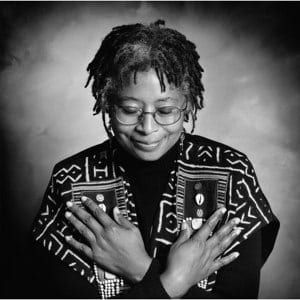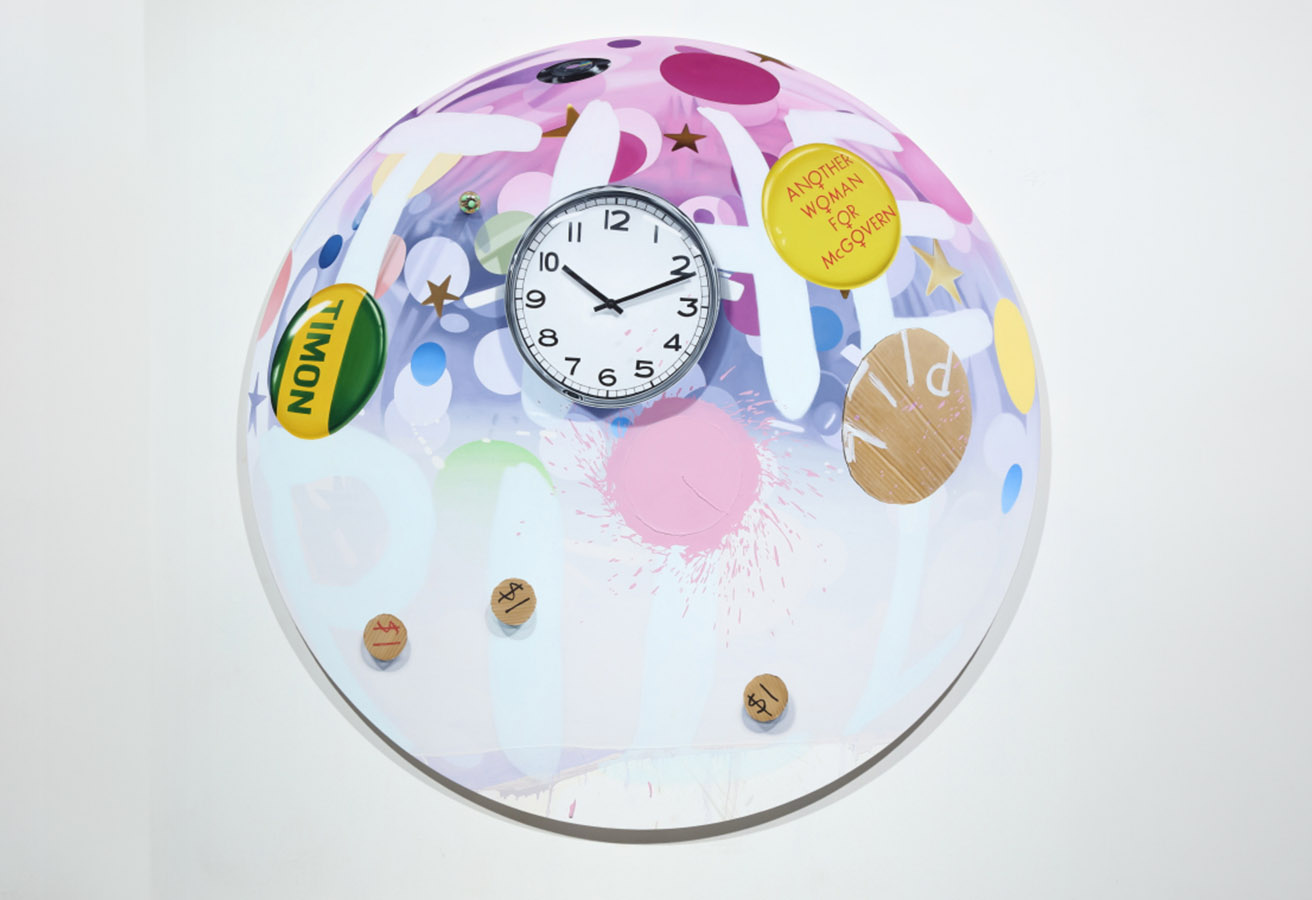Alice Walker’s brief remarks seemed to stall time at the Plaza Arts Center in Eatonton last weekend. Hundreds of literature lovers descended on the rural town for Walker’s 75th birthday celebration, which featured a documentary screening, musical performances and other famous authors reading from her work.
Walker, whose actual birthday is February 9, was born in Eatonton to parents who worked as sharecroppers. She is the Pulitzer Prize-winning author of the novel The Color Purple and close to 40 other books. Over the course of her 50-year career, she has worked as an artist, activist and educator, and she was a contributor to the feminist publication Ms. magazine for nearly a decade.
We caught up with Walker just before the celebration to discuss her childhood, her career and what she has left to do at 75.
ARTS ATL: When did you know that writing was your calling? Who nourished that talent?
 Alice Walker: Tolstoy, Dostoyevsky, Shakespeare — the random books that my father would find and bring home; the stories in Prose & Poetry, which is a collection of English literature that we had. It’s amazing that all these things turned up in our little shack. But everyone loved to read, and I was like, “Gosh, here’s this thing that fell out of the sky and we all like it. I wonder if I can do it.” My mother tells a story about me scribbling with a twig in the dirt trying to write a novel. Some of these things are marvelously and miraculously sent to guide you in the path of your own gift. There was a love of reading in my family even though my parents went to fourth and fifth grade. If you do your part and show up, the universe often has a big gift for you, and I’m so grateful.
Alice Walker: Tolstoy, Dostoyevsky, Shakespeare — the random books that my father would find and bring home; the stories in Prose & Poetry, which is a collection of English literature that we had. It’s amazing that all these things turned up in our little shack. But everyone loved to read, and I was like, “Gosh, here’s this thing that fell out of the sky and we all like it. I wonder if I can do it.” My mother tells a story about me scribbling with a twig in the dirt trying to write a novel. Some of these things are marvelously and miraculously sent to guide you in the path of your own gift. There was a love of reading in my family even though my parents went to fourth and fifth grade. If you do your part and show up, the universe often has a big gift for you, and I’m so grateful.
ARTS ATL: You’ve described some of what you experienced in Eatonton as terrorism. How did you reconcile your relationship with the South over the years?
Walker: I lived in Mississippi for 10 years, and that helped because I could see some of the roots still vibrant of the extreme discourtesy that I had experienced as a child but in a milder way. My parents made sure we were not overburdened by thoughts of racism. They turned their attention toward community building. My parents and other people in the community built the first school for us, and it was burned down, and they built another one. They never let up on their sense that we are responsible for our own community.
But when I went to Mississippi, I could look back and realize that when I was forced to the back of the bus as I was going off to college, that was something that had a deeper imprint in my parents’ psyche; they thought we’d have to endure this forever. But I was 17, and I thought, “No. Enough of this already.” I wrote recently about overhearing my parents talking about a lynching, and I remember as a child it was so unfathomable because they beat this man with 2x4s. I am really aware that I grew up on the cusp, and we couldn’t imagine that it would flower the way that it did and change structures.
ARTS ATL: Where do you think of as home? I know you’ve been in the Bay Area for a while.
Walker: The universe — that’s where I think of as a home. On a local level, I think of the country — of which I mean rural fields, trees and rivers. It doesn’t have to have a name. In fact, there’s a section of Eatonton which I discovered only when my eldest brother was almost dying — I was well into my 60s then — maybe even more beautiful than where I was born. I don’t relate that much to cities; I never have really. I’m more at home in the natural world than I am in any constructed city or settlement.

ARTS ATL: Do you believe that there is a God or a higher power? And if so, how do you conceive of it?
Walker: I think that the whole experience we’re having is one of extraordinary power. I would describe it as an incredible gift. I don’t go so far as to assume that I know how it came to be. The whole thing would have to be God. All together, we’re it. It would have to be something like, in a way, learning to love what is unknowable and feeling okay. I think the prayer is basically gratitude. There is no superlative to cover this experience we’re having; it’s beyond comprehension, which is why they came up with God.
ARTS ATL: The Color Purple is your 10th book, and it’s partially written as letters to God. The book was published more than 30 years ago, but people seem to never tire of it. Why do you think the story resonated then and now?
Walker: Faulkner said, “The past is not past.” I think that’s it. It’s still continuing to do incredibly well in so many parts of the world. For instance, the play was in South Africa, where it was a huge smash. Somewhere in Canada, it was directed by a black woman, and that had never happened there. It just shows you the past is not past. When we have dealt with all of these issues in another century, it won’t be relevant. Until then, I do feel that women and men respond to it because it is fresh enough so that they can feel that visceral connection of ancestors. The distance between generations disappears, and I love that.

ARTS ATL: What are you working on now? What’s next for you?
Walker: I never talk about what I’m working on. There’s a part of creativity that does not like being disturbed or anticipated. There’s a tendency in this culture to try to mine whatever is not already apparent. I want the culture to develop the patience with the creative process.
ARTS ATL: At 75, what do you want your legacy to be?
Walker: I have no interest in my legacy. People can take whatever it is that they find useful. Having lived my life so fully, I can’t really be thinking about what’s going to be after earth. I may consider where I’ll be going, which will probably be some amazing realm. I guess I would say I just hope that people will take what they can use.







